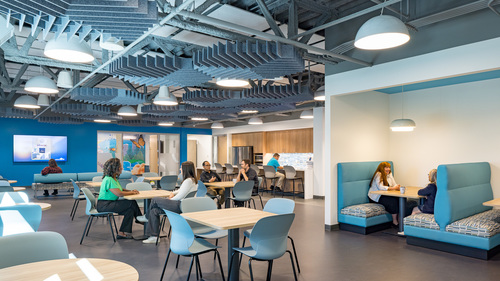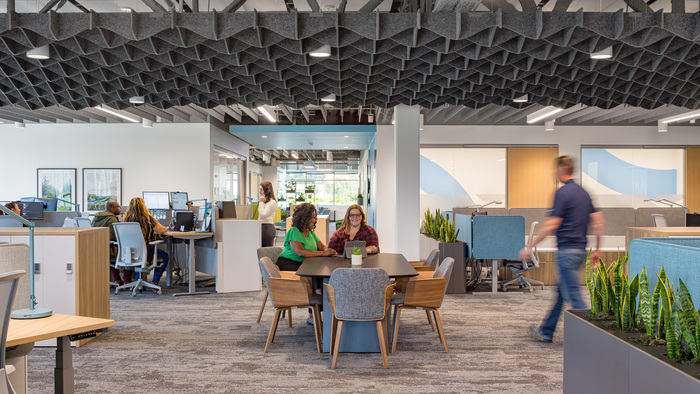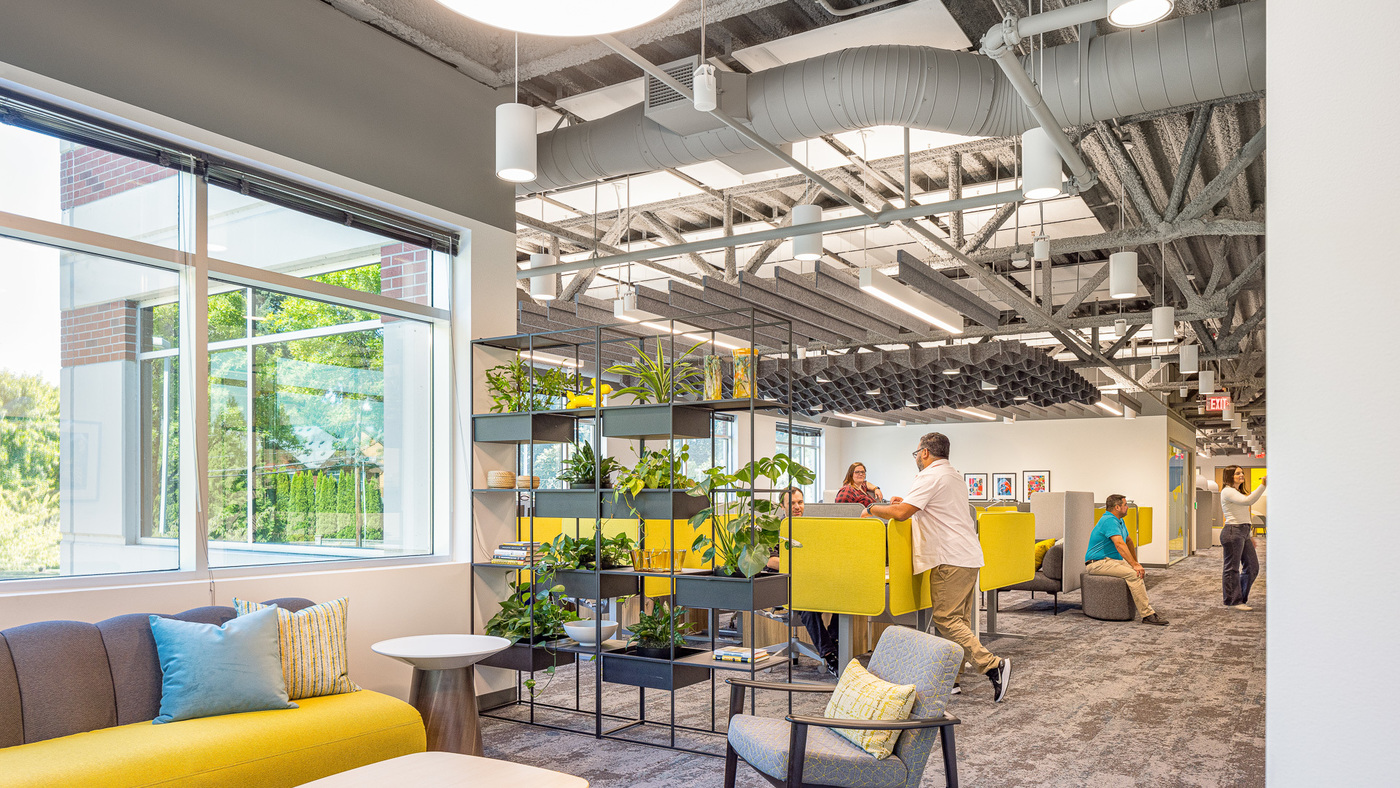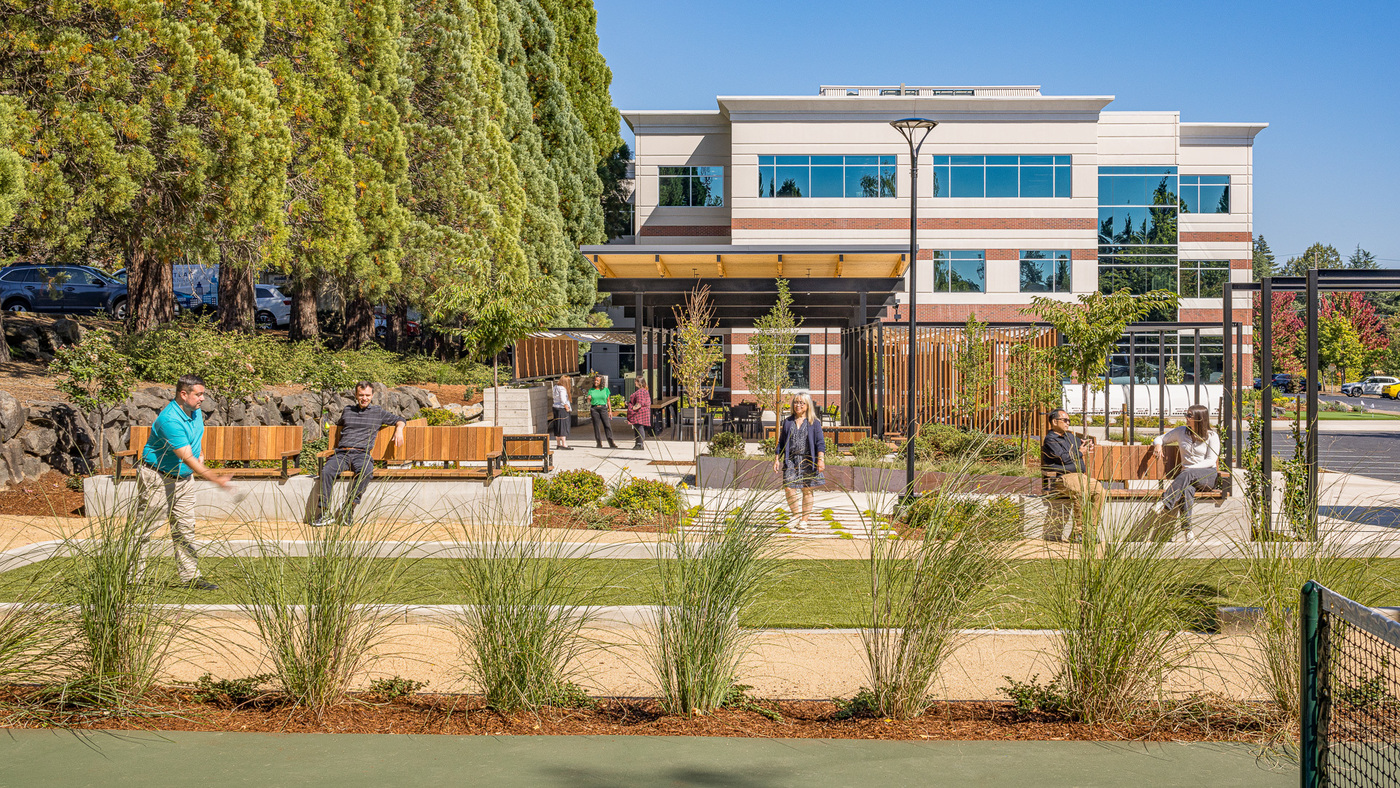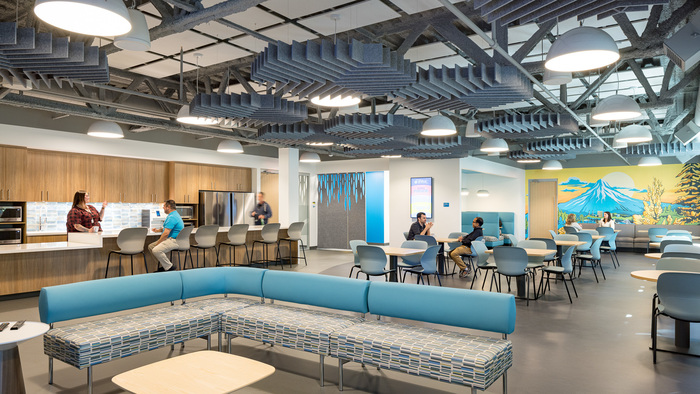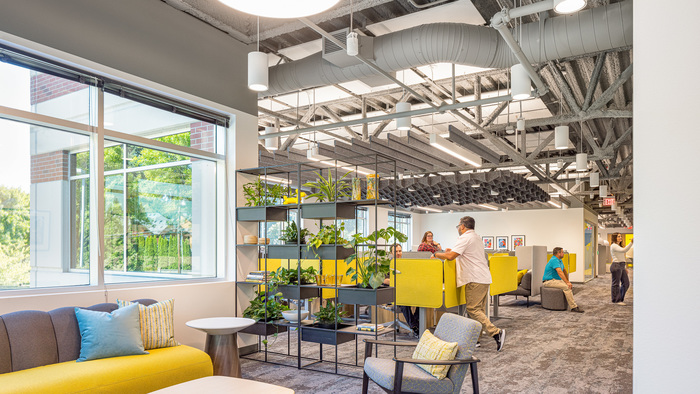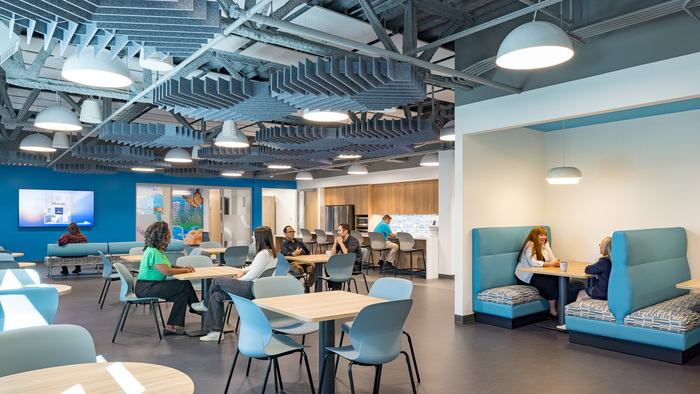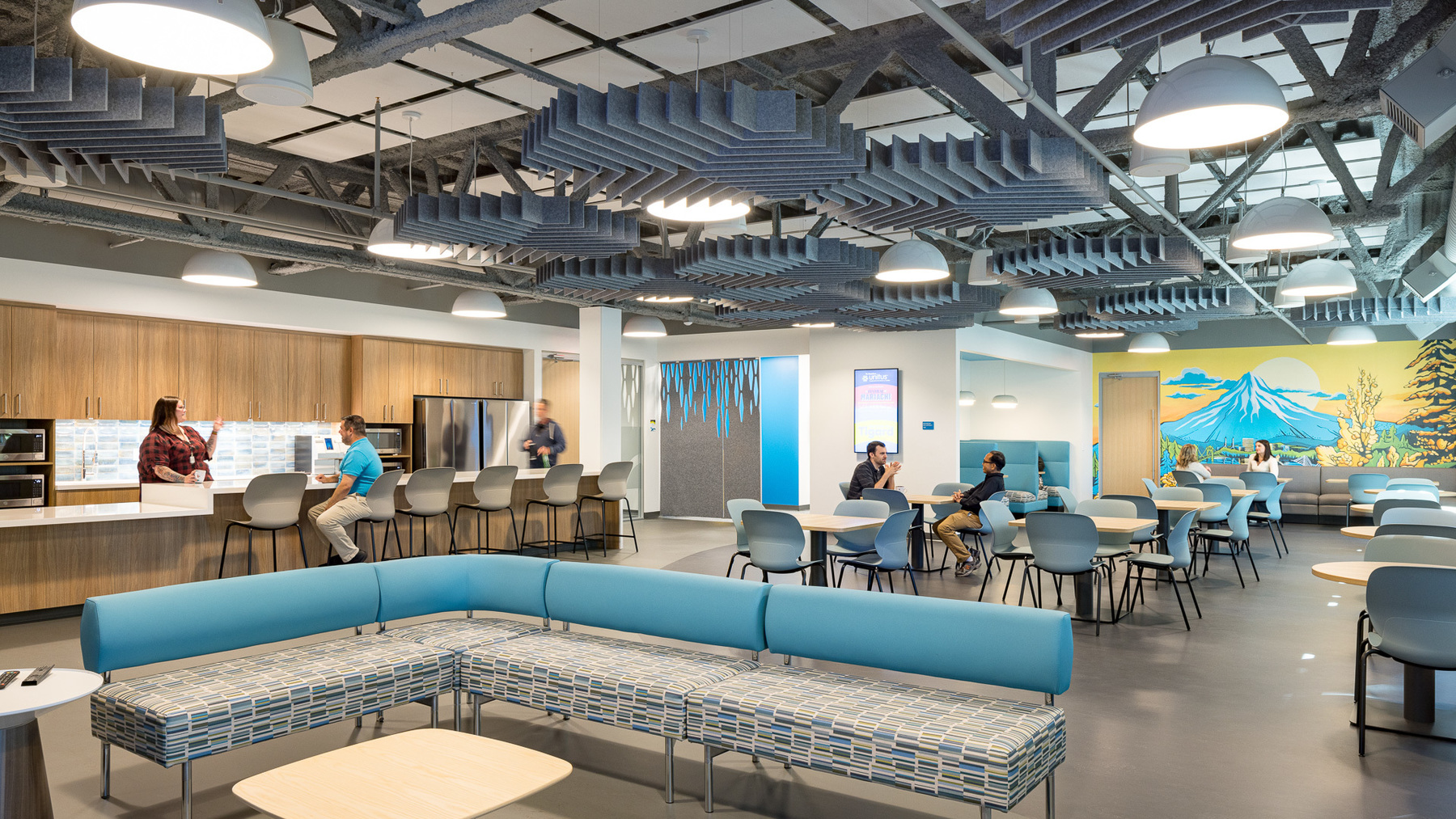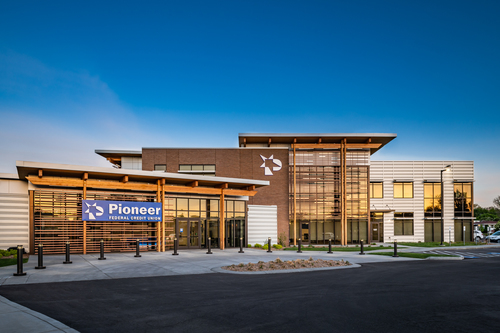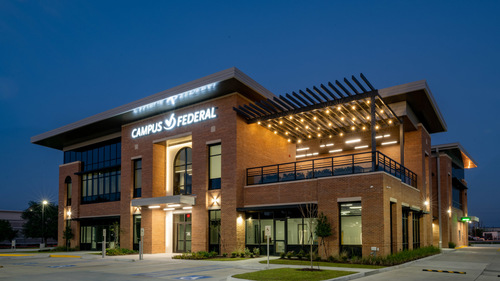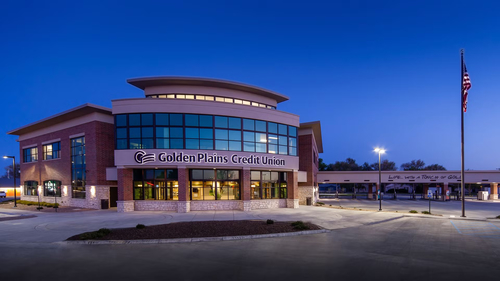
Celebrating Northwest Roots
Guests at the branch are immediately welcomed with a bright and welcoming atmosphere, with light from the branch’s tall clerestory windows illuminating the exposed cross-laminated timber framing and reclaimed wood paneling.
Concrete floors offset the wood tones and ground the space, while frosted trees on the interior windows both enhance the branch’s pacific northwest atmosphere and provide additional privacy in the hotel offices while preserving a feeling of openness. And despite the branch’s efficient use of 3,200 square feet, the lobby and hotel offices feel much larger due to high ceilings and windows.
The branch focuses around a teller line, which helps staff efficiently process transactions. Seating flanks each side of the counter, allowing members to have more in-depth conversations with staff. These conversations are also supported by additional hotel offices, where members can engage in conversations around more complex topics such as wealth management and home lending.

